Flow: For Love of Water is a american film of genre Documentary released in USA on 12 september 2008
Flow: For Love of Water (2008)
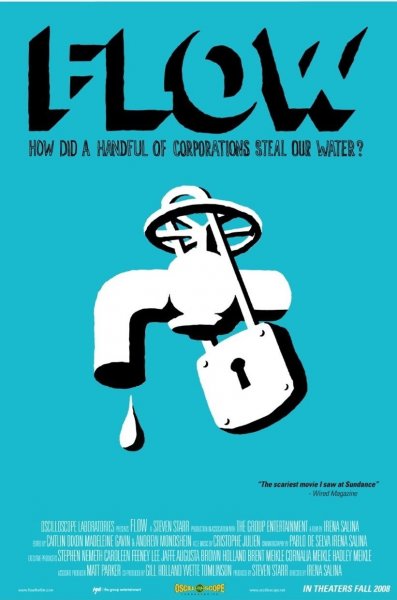
If you like this film, let us know!
- Infos
- Casting
- Technical infos
- Photos
- Videos
- Film quotes
- Characters
- Music
- Awards
Released in USA 12 september 2008
Length 1h33
OriginUSA
Genres Documentary
Themes Environmental films, Documentary films about environmental issues, Documentary films about politics, Political films
Rating74%










Flow: For Love of Water is a 2008 documentary film directed by Irena Salina produced by Steven Starr and co-produced by Gill Holland and Yvette Tomlinson . The film features interviews with water and community activists Maude Barlow, Peter Gleick, Ashok Gadgil, William Waterway, Rajendra Singh, and Vandana Shiva. The film won the Grand Jury Award at the Mumbai International Film Festival and the Grand Jury Award for Best Documentary at the United Nations Film Festival.
The film deals with attempts at privatization of water infrastructure. Major businesses depicted in the film are Nestle, The Coca-Cola Company, Suez, and the International Monetary Fund (IMF).
It competed in the Documentary Competition at the 2008 Sundance Film Festival.
FLOW launched a Right To Water campaign to add a 31st article to the Universal Declaration Of Human Rights, Article31.org. FLOW was released theatrically by Oscilloscope Labs in September, 2008, and then invited to screen for the UN General Assembly on the 60th anniversary of the signing of the Universal Declaration of Human Rights, where the first 50,000 signatories to Article31 were presented to the President of the General Assembly, Father Miguel D'Escoto Brockmann.
Comments
Leave comment :
Suggestions of similar film to Flow: For Love of Water
There are 8962 with the same cinematographic genres, 8280 films with the same themes (including 30 films with the same 4 themes than Flow: For Love of Water), to have finally 70 suggestions of similar films.If you liked Flow: For Love of Water, you will probably like those similar films :

The Wanted 18 (2014)
, 1h15Origin Canada
Genres Documentary, Animation
Themes Films set in Africa, Films about animals, Environmental films, Films about religion, Films about the labor movement, Documentary films about business, Documentary films about law, Documentary films about environmental issues, Documentary films about war, Documentary films about historical events, Documentary films about politics, Documentary films about religion, Documentaire sur le monde du travail, Films about cows, Political films, Films about Jews and Judaism, Mise en scène d'un mammifère
Rating71%





L'œuvre présente les efforts des Palestiniens habitant la ville et la région de Beit Sahour, en Cisjordanie, pour démarrer une petite industrie laitière locale au cours de la première Intifada, en cachant un troupeau de dix-huit vaches laitières aux forces de sécurité israéliennes qui considérait la production de laitages comme une menace pour la sécurité nationale d'Israël.
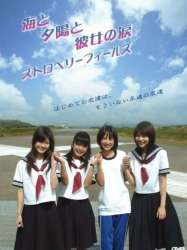
Strawberry Fields (2006)
, 1hOrigin Israel
Genres Drama, Documentary, Fantasy
Themes Films set in Africa, Environmental films, Films about religion, Documentary films about business, Documentary films about law, Documentary films about environmental issues, Documentary films about war, Documentary films about historical events, Documentaire sur une personnalité, Documentary films about politics, Documentary films about religion, Political films, Films about Jews and Judaism
Actors Mitsuki Tanimura, Yuria Haga
Rating64%





Strawberry Fields points out that strawberries grown in Gaza are the only agricultural product marketed internationally as being of Palestinian origin. One of the major Gaza strawberry farms in located at Beit Lahiya. More than 1,500 tons of strawberries are exported from Gaza to Europe through the Israeli company Agrexco. In order to get overseas, however, the fruits need to pass through the checkpoint that separates Israel and Gaza. The 2005–2006 growing season coincided with the Israel's disengagement from Gaza and the rise of Hamas as the ruling political entity. The armed conflict between Israel and Hamas resulted in the closing of the border checkpoint. The strawberries grown at Beit Lahiya cannot leave Gaza, resulting in significant losses for the farmers and their Agrexco partners. Unable to transport their produce, the farmers have no choice but to dispose of their crop and prepare for the following year’s growing season.

Up the Yangtze (2007)
, 1h33Directed by Yung Chang
Origin Canada
Genres Documentary
Themes Environmental films, Documentary films about environmental issues, Documentary films about politics, Documentary films about technology, Political films
Actors Yung Chang
Rating74%





The setting of the film is a riverboat cruise ship floating up the Yangtze river. Two young people are the focus of the film as they work aboard the ship. One is a sixteen-year-old girl from a particularly poor family living on the banks of the Yangtze near Fengdu, named "Cindy" Yu Shui. She is followed as she leaves her family to work on one of the cruise ships serving wealthy western tourists at the same time as her family is being forced from their home due to the flooding that accompanied the building of the dam. The film shows her acclimatization to the consumer economy of tourism as well as modern technology of the cruise ships, juxtaposed with her family and other older citizens who are displaced from a rural lifestyle to cities where they must pay for the vegetables they used to grow on their own.
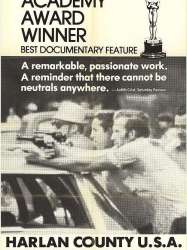
Harlan County U.S.A. (1977)
, 1h43Directed by Barbara Kopple
Origin USA
Genres Documentary
Themes Environmental films, Films about anarchism, Politique, Films about the labor movement, Documentary films about business, Documentary films about environmental issues, Documentary films about politics, Documentary films about technology, Documentary films about anarchism, Political films
Rating81%





Kopple initially intended to make a film about Kenzie, Miners for Democracy and the attempt to unseat Tony Boyle. When miners at the Brookside Mine in Harlan County, Kentucky went on strike in June 1972, Kopple went there to film the strike against Duke Power Company which the UMWA had helped to organize. The strike proved a more interesting subject, so Kopple switched the focus of her film.
 , 2h3
, 2h3Origin USA
Genres Documentary
Themes Environmental films, Documentary films about environmental issues, Documentary films about politics, Documentary films about technology, Political films, Disaster films
Actors Daniel Quinn
Rating75%






A Cow at My Table (1998)
, 1h30Directed by Jennifer Abbott
Origin Canada
Genres Documentary
Themes Films about animals, Environmental films, Documentary films about business, Documentary films about animal rights, Documentary films about law, Documentary films about environmental issues, Documentary films about politics, Films about cows, Political films, Documentary films about nature
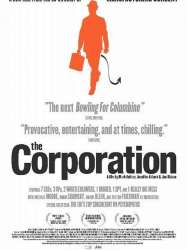
The Corporation (2003)
, 2h25Directed by Jennifer Abbott, Mark Achbar
Origin Canada
Genres Documentary
Themes Environmental films, Medical-themed films, La mondialisation, Films about the labor movement, Documentary films about business, Documentary films about environmental issues, Documentaire sur une personnalité, Documentary films about politics, Documentary films about health care, Documentaire sur le monde du travail, Films about psychiatry, Films about disabilities, Political films
Actors Michael Moore, Naomi Klein
Rating79%





The documentary shows the development of the contemporary business corporation, from a legal entity that originated as a government-chartered institution meant to affect specific public functions to the rise of the modern commercial institution entitled to most of the legal rights of a person. The documentary concentrates mostly upon North American corporations, especially those in the United States. One theme is its assessment of corporations as persons, as a result of an 1886 case in the United States Supreme Court in which a statement by Chief Justice Morrison R. Waite led to corporations as "persons" having the same rights as human beings, based on the Fourteenth Amendment to the United States Constitution.

Your Mommy Kills Animals (2007)
, 1h45Origin USA
Genres Documentary
Themes Films about animals, Environmental films, Politique, Films about terrorism, Documentary films about animal rights, Documentaire animalier, Documentary films about law, Documentary films about environmental issues, Documentary films about war, Documentary films about historical events, Documentary films about politics, Documentary films about terrorism, Political films, Documentary films about nature
Rating65%





The film reports on controversies concerning and within the animal rights movement. These include external conflicts between animal rights advocates and medical researchers and restaurant operators, and internal disagreements within the animal rights movement between the animal shelter operators and the confrontationalists who demonstrate outside homes of corporate opponents. The film also discusses the comparison between animal liberation activists and political terrorists, including the FBI's ranking of animal-rights activists as the nation's No. 1 domestic terrorism threat.
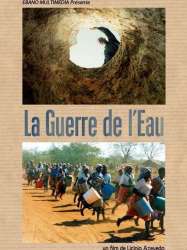
A Water War (1996)
, 1h13Directed by Licínio Azevedo
Genres Documentary
Themes Environmental films, Documentary films about environmental issues, Documentary films about politics, Political films
Rating28%






Bitter Seeds (2011)
, 1h28Origin USA
Genres Documentary
Themes Environmental films, Documentary films about business, Documentary films about environmental issues, Documentary films about historical events, Documentary films about politics, Political films
Rating76%





Micha Peled's documentary on BT farming in India observes the impact of genetically modified cotton on India's farmers, with a suicide rate of over a quarter million Bt cotton farmers each year due to financial stress resulting from massive crop failure and the price of Monsanto's Bt seeds. The film also disputes claims by the biotech industry that Bt cotton requires less pesticide and promises of higher yields, as farmers discover that Bt cotton requires more pesticide than organic cotton, and often suffer higher levels of infestation by Mealybug resulting in devastating crop losses, and financial and psychological stress on cotton farmers. Due to the biotech seed monopoly in India, where Bt cotton seed has become the standard, and organic seed has become unobtainable, thus pressuring cotton farmers into signing Bt cotton seed purchase agreements with biotech multinational corporation Monsanto.
 Connection
Connection